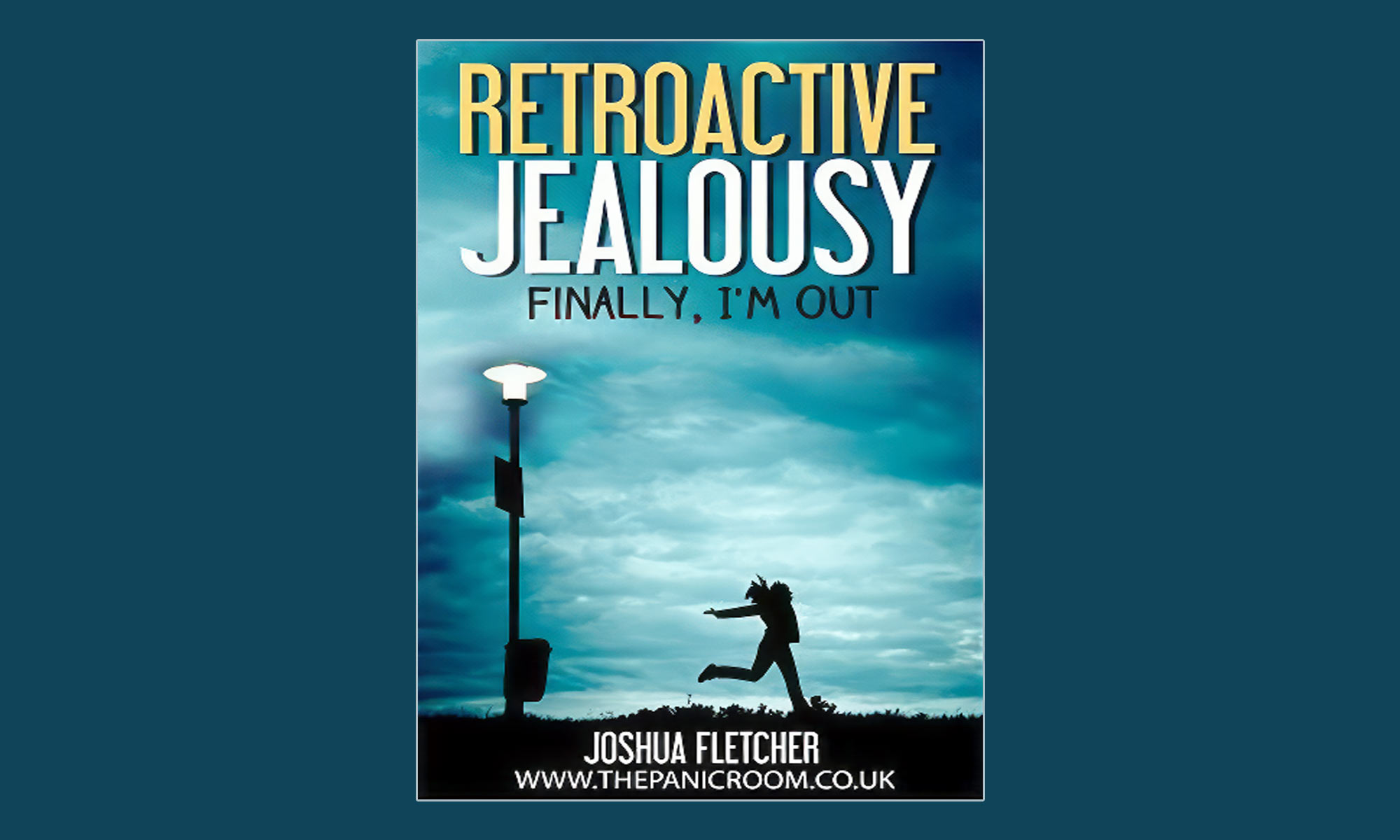I recently reviewed two retroactive jealousy self-help books – Zachary Stockill’s book and one from Toby Ingham.
Then people in the YouTube comments recommended I read this one: Retroactive Jealousy: Finally I’m Out by Joshua Fletcher.
So thank you for the heads up. I’d come across Joshua through his Disordered podcast (which is great!). He’s a psychotherapist who often goes by the name Anxiety Josh.
But I didn’t know he’d overcome retroactive jealousy and written this book about how he did it. With a full-on sense of humour. I laughed out loud, multiple times.
Social cues and masculine insecurity?
In the ‘What is RJ?’ section, Joshua lists the symptoms and the usual causes such as anxiety and self-doubt. He keeps this brief because, as he says, you’re probably sick of hearing about it. You want to know what to do about it.
But his insights are well worth a mention. Social conditioning, for example: some men adopt a kind of laddish-masculine attitude when they’re teenagers (to be one of the lads, or avoid being bullied by them).
This involves putting down certain girls, the ‘easy ones’. It’s a misogynistic mindset – men deserve more sexual freedom than women – but do we really believe that? Fast forward to falling in love with a woman with some sexual past… and we feel really conflicted.
On the insecurity front – guys struggling with RJ often have a bit of a reaction when this is suggested. “I’m not insecure!“
But it’s not just about sexual insecurity; it’s broader doubts we might have about ourselves and our masculinity. Our status and how we’re viewed by the world. Men with RJ often say “it feels like I’m being laughed at…“
It takes time and determination to change these ingrained ways of thinking about ourselves. Joshua says there will be frustrations and disappointments along the way. True that.
A simplistic approach to change?
In my role of reviewer and nitpicker, some advice in this book can seem a bit ‘you MUST change this now’.
For example, Joshua says “it’s natural to feel upset at having these intrusive thoughts (I agree), but your new perspective is: I’m now OK with these thoughts. Analysing just makes me NOT OK with it”.
I appreciate the directness here, but OK – how do I become OK with the thoughts? It feels like they run quite deep; I’ve tried hard already. I can imagine readers asking these questions throughout.
It easier said than done, and that’s the role of therapy and deeper work, I’m guessing Joshua would say. And he doesn’t try to upsell us some online course costing many hundreds of dollars…
And this book has some of those well-intended reframes that never quite land. For example, ‘if sex with your partner is good, that’s due to accumulated experience. Sex with someone inexperienced is disappointing – you should be grateful.’
Again, it’s fundamentally true but good luck converting retroactive jealousy to gratitude for the past.
Advice for handling RJ thoughts
Getting to the meat of ‘How to overcome RJ thoughts’, Joshua says to observe them (I’m having the thought, my adrenaline is ramping up the feeling, I’m thinking this out of habit) and then reroute the thought.
Do something different in response. Get up, go for a run, listen to music, finish that bit of DIY, do something that isn’t ruminating or asking about the past.
For what it’s worth, I agree with the observing part, not so much with find a distraction. We really want to get to not responding in any way – and we can.
Joshua recommends backing up this work by reflecting on beliefs, our identity and our values. And he expands on this well, with lots of food for thought.
Then there’s a ‘What to do now’ section with 10 clear guidelines: e.g. recognise these patterns of anxiety, apply your common sense, stop blaming others, take your partner off the pedestal (that’s a top tip right there). And try to get on with your life.
Conclusion: a genuinely helpful book for RJ
Joshua dedicates this book to anyone with the bravery to look at themselves and think “No, I’ve got this wrong“. That’s spot on.
Retroactive Jealousy: Finally I’m Out is a great resource. It’s direct, down to earth, full of insights.
Do I think it works? Yes.
Just like Zachary Stockill’s book, I can imagine someone with a lighter experience of RJ finally getting out – or getting a good way out.
There’s a feedback section at the end of the book from people who did, and it looks legit to me. And for those of us who need a bit more support – therapy or something more comprehensive – this book is a solid foundation.
Good work, Joshua Fletcher, when you wrote it 10 years ago!
I hope this is helpful for you, and if you have a recommendation – a book, video, course that got you out of RJ, do let me know – I’m all ears.
